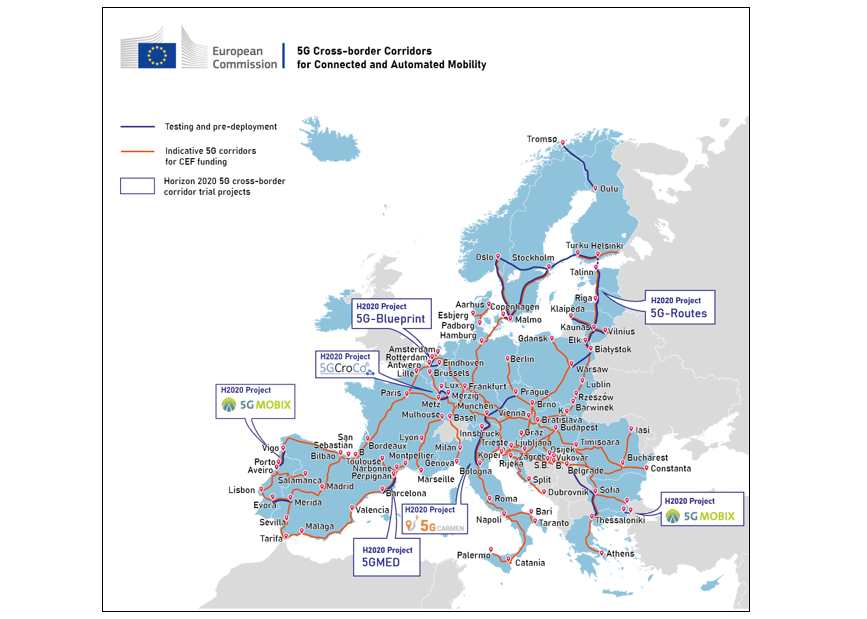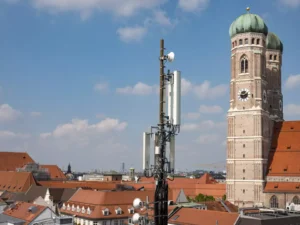The 29 countries that signed a Letter of Intent signed on Digital Day 2017 agreed to designate digital cross-border corridors, where vehicles can physically move across borders and where cross-border road safety, data access, data quality and reliability, connectivity and digital technologies can be tested and demonstrated.

The European Commission’s ambition is to focus on these corridors in future EU automated-driving projects, when devising digital policies, which includes cybersecurity, privacy, 5G, the Internet of Things, the data economy, the free flow of data, etc.
Within the European 5G vertical strategy, Connected and Automated Mobility (CAM) is considered as a flagship use case for 5G deployment along European transport paths, in view of creating complete ecosystems around vehicles, from road-safety or digital rail operations to high-value commercial services for road users and train passengers, e.g. mobile office or infotainment.
In order to prepare for the deployment of 5G cross-border corridors for CAM, the MSs signed, in March 2017 in Rome, a Letter of Intent (LoI) with the view to intensify cross-border cooperation for large-scale testing and pre- deployment. This agreement was preceded by bilateral initiatives between Luxembourg, France and Germany, and among the Nordic countries, and has been followed since then by a number of agreements between Spain and Portugal, between Bulgaria, Greece and Serbia, and between Estonia, Latvia, Lithuania and Poland over the “Via Baltica”, with an extension between Lithuania and Poland.
More recently, two agreements – between France and Spain and between the Netherlands and Flanders – were signed, respectively in September 2020 and in May 2020, in the form of MoU. The Netherlands-Flanders agreement concerns the Antwerpen-Rotterdam corridor encompassing road, harbours and inland waterways. The table below presents the situation regarding the on-going initiatives.
These corridors include:
- Metz-Merzig-Luxembourg (France, Germany, Luxembourg)
- Rotterdam-Antwerp-Eindhoven (Netherlands, Belgium, Netherlands)
- Porto-Vigo and Merida-Evora (corridor Lisbon – Madrid),
- The E8 “Aurora Borealis” corridor between Tromsø (Norway) and Oulu (Finland)
- The “Nordic Way” between Sweden, Finland, Denmark and Norway
- Brenner Corridor: IT-AT-DE
- Thessaloniki, Sofia-Belgrade: EL-BG-RS
- EE-LV-LT Via Baltica (E67) Tallinn (EE) – Riga (LV) – Kaunas (LT) – Lithuanian/Polish border
- LT-PL Via Baltica Kaunas-Warsaw, and further a national extension between Kaunas and Vilnius (LV)
- München (DE) – Prague (CZ)
- Barcelona (ES) – Perpignan (FR), Santander (ES) – Biarritz (FR)
- Rotterdam (NL) – Antwerpen (BE)
The following map displays all the main public-private initiatives in Europe.

Source: European Commission, September 2020
The 5G corridors make Europe the largest trial area for 5G technology rollouts.










